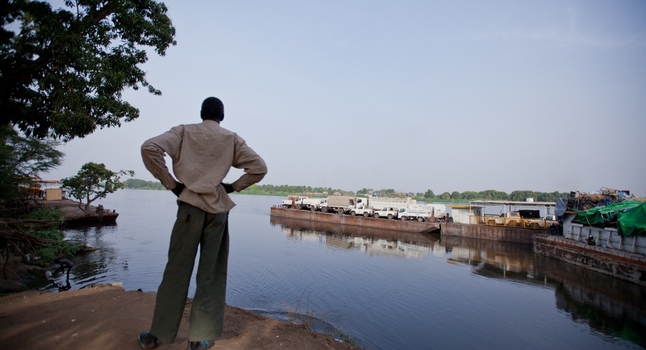CAIRO: After a months-long trial, an Egyptian court on Monday found 20 cement industry executives guilty of price-fixing, slapping each with a LE 10 million ($1.87 million) fine and another LE 10 million for each company.
The 20 executives were found to be in violation of Law No.3 of 2005 on the Protection of Competition and Prohibition of Monopolistic Practices.
The amended version of the anti-monopoly law passed by the People’s Assembly (PA) last June put the minimum fine for monopolistic business practices at LE 100 million. However, this does not apply to the case of the 20 cement executives since the trial began before the amended version of the law was approved.
Judge Hisham Hamdy told a Cairo court that the businessmen had caused “deliberate harm to the national economy through practices like price-fixing, in violation of the law governing monopolies, according to reports.
None of the defendants were present in court but their lawyers said they would appeal the decision immediately.
“We have full confidence in the Egyptian legal system, and the appeal will prove that we are innocent and that there is no [grounds for the] case,
Omar Mohanna, chairman of Suez Cement, one of the 20 executives facing fines, told Daily News Egypt.
The defendants also include executives from Misr Beni Suef Cement, Misr Qena Cement, Torah Cement, Al-Ameriyah Cement.
The trial – which began in February 2008 – is the first of its kind under Egypt’s anti-monopolies law, passed three years ago to bring Egyptian law in line with international practices.
The government – embodied in the Ministry of Trade and Industry – filed accusations of anti-competitive practices against local cement producers in October after a 14-month probe by the ministry’s Egyptian Competition Authority (ECA).
The ECA reported the existence of a cartel among cement companies that monopolized the market, conspired to raise prices, and at times restricted production of the commodity, leading to a stir in the industry. It said local cement producers agreed on prices and how to divvy up the market for Portland cement in 2005 and 2006.
Following the accusations, the prosecution found Monday the 20 cement industry executives guilty as charged.
“This verdict confirms the [ECA’s findings] that local cement producers agreed on price-fixing and broke the anti-monopolies law, said Amr Assal, head of Egypt’s Industrial Development Authority. “It asserts that monopoly is a crime.
The verdict will deter companies from employing monopolistic practices in the future and from exploiting consumers, Assal added.
However, one industry analyst is more skeptical of the verdict and believes the LE 10 million fine will have no adverse effect on cement producers.
“This LE 10 million fine is insignificant compared to size of their revenues, said the analyst who spoke on condition of anonymity. “It would have been more effective if it had been a percentage of revenue.
Initially, the ministry – in cooperation with the ECA – recommended a penalty between 10 or 15 percent of the company’s profits. However, the Egypt’s ruling National Democratic Party (NDP), led by Ahmed Ezz, vetoed the proposal and the parliament passed the current fines. Instead, the fines were set at LE 100 million and LE 300 million.
ECA officials that spoke to Daily News Egypt on Monday declined to comment on the verdict, however, they implied they were relieved to win their first case.
Spiraling cement prices have triggered public outcry in recent months, with some experts hinting that producers gratuitously doubled prices on the market. On the other hand, local producers justified price upsurges as a result of supply-demand mechanisms during a building boom in recent years.
Some cement companies have seen an explosive rise in profits over the past several months. Suez Cement – Egypt’s largest cement company – reported this week a 28.8 percent increase in profits for the first half of 2008. Its profits were LE 768.99 million for the first half of 2008 as compared to LE 597.04 million a year ago.
Rising local cement prices drove the Trade Ministry to introduce February 2007 an export duty on cement at LE 65 per ton that rose to LE 85 a ton in August of last year, in an effort to increase domestic supply and push down local prices.
Still, cement prices continued to peak at levels of LE 520-550 per ton which drove the ministry to ban cement exports altogether this March. The decision saw positive results with the retail price of cement dropping to the current LE 485 per ton.
Shares in the charged cement companies performed differently at the Egyptian Stock Exchange on Monday. By press time, shares of Misr Cement Qena plunged 4.8 percent to LE 72.31 and Misr Beni Suef dropped 1.3 percent to LE 73.92.
Torah Cement traded almost 1 percent lower at LE 119.44. But shares in the other two companies closed in the green, with Suez Cement gaining 0.76 to LE 37.26 per share and Al-Ameriyah climbing 3.5 percent to LE 35.75.
Meanwhile, the three-year-old anti-monopoly commission is now investigating Egypt’s steel sector, which is dominated by the Ezz Group of senior ruling NDP official Ahmed Ezz. The steel probe has been ongoing for two years.
Findings of investigations in steel monopoly charges were due last December, but have been delayed since then, which triggered speculation that Egypt’s giant steel producer Ahmed Ezz might be using his political ties to close the current investigation.
According to sector analysts, steel prices have surged almost 100 percent over last year’s prices. Higher steel as well as cement prices have weighed on Egypt’s inflation rate, which hit 22 percent in the year to July.

